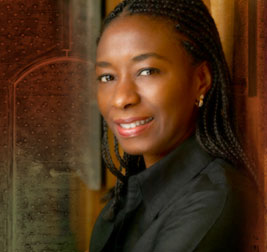Everything Good Will Come
 Hardcover/Paperback Hardcover/Paperback
Publisher: Interlink Books (October 31, 2004)
Pages: 336 pages
Language: English
ISBN-10: 1566565707
ISBN-13: 978-1566565707

It is 1971, and Nigeria is under military rule, though the politics of the state matter less than those of her home to Enitan Taiwo, an eleven-year-old girl tired of waiting for school to start. Will her mother, who has become deeply religious since the death of Enitan’s brother, allow her friendship with the new girl next door Sheri Bakare? This novel charts the fate of these two Nigerian girls, one who is prepared to manipulate the traditional system and one who attempts to defy it.
THE REVIEWS
“A beautifully paced stroll in the shoes of a woman growing up in a country struggling to find its post-independence identity…Everything Good Will Come depicts the struggles women face in a conservative society. This is convincing; more remarkable is what the novel has to say about the need to speak out when all around is falling apart.” – Times Literary Supplement, UK
“An original, witty, coming-of-age tale: Tom Sawyer meets Jane Eyre, with Nigerian girls…you can feel the dust and sun. This is award-winning novel is an iridescent introduction to a fascinating nation.” – Observer Magazine, UK
“Again and again Atta’s writings tugs at the heart, at the conscience. At the same time, reflecting the resilience of the Lagosians whose lives she explores, humour is almost constant, effervescent, most often with a satirical twist.” – Sunday Independent, South Africa
“This lively first novel breaks new ground with a close-up, honest story of a contemporary Yoruba woman’s coming-of-age in Lagos. Never reverential, Enitan’s first person narrative reveals the dynamic diversity within the city, the differences across class, generation, gender, faith, language, tradition, and individual character. Differences, yes, but sometimes connections, too.” – Booklist
“Sefi Atta’s first novel has the nerve to redefine existing traditions of African Story telling. It confronts the familiar passions of a city and a country with unusual insights and a lyrical power pointing our literature to truly greater heights.” – Odia Ofeimun, author of The Poet Lied
“Everything Good Will Come is like listening to an old friend recounting and bringing up to date and to life happenings in our beloved city of Lagos. I was sorry when I came to the end.” – Buchi Emecheta, author of The Joys of Motherhood
“What is beyond doubt is that Sefi writes brilliantly with instantly infectious wit.” – Bashorun JK Randle, author of The Godfather Never Sleeps
“There is wit, intelligence and a delicious irreverence in this book. But it is Sefi Atta’s courage in choosing to look at her fictional world through fiercely feminist lenses that I most admired.” – Chimamanda Ngozi Adichie, author of Purple Hibiscus
“This is a courageous story about friendship and self-discovery, it is a rallying cry to women to speak out in a world that tries to muzzle them.” – Helon Habila, author of Waiting For an Angel
“An affirmation of faith in one’s capacity, especially female and national, for self-realization.” – Tanure Ojaide, author of Labyrinths of the Delta
TEXT EXCERPT
From the beginning I believed whatever I was told, downright lies even, about how best to behave, although I had my own inclinations. At an age when other Nigerian girls were masters at ten-ten, the game in which we stamped our feet in rhythm and tried to outwit partners with sudden knee jerks, my favorite moments were spent sitting on a jetty pretending to fish. My worst was to hear my mother’s shout from her kitchen window: “Enitan, come and help in here.”
I’d run back to the house. We lived by Lagos Lagoon. Our yard stretched over an acre and was surrounded by a high wooden fence that could drive splinters into careless fingers. I played, carelessly, on the West side because the East side bordered the mangroves of Ikoyi Park and I’d once seen a water snake slither past. Hot, hot were the days as I remember them, with runny-egg sunshine and brief breezes. The early afternoons were for eat and sleep breaks: eat a heavy lunch, sleep like a drunk. The late afternoons, after homework, I spent on our jetty, a short wooden promenade I could walk in three steps, if I took long enough strides to strain the muscles between my thighs.
I would sit on its cockle-plastered edge and wait for the water to lap at my feet, fling my fishing rod, which was made from tree branch, string, and a cork from one of my father’s discarded wine bottles. Sometimes fishermen came close, rowing in a rhythm that pleased me more than chewing on fried tripe; their skins charred, almost gray from sun-dried sea salt. They spoke in the warble of island people, yodeling across their canoes. I was never tempted to jump into the lagoon as they did. It gave off the smell of raw fish and was the kind of dirty brown I knew would taste like vinegar. Plus, everyone knew about the currents that could drag a person away. Bodies usually showed up days later, bloated, stiff and rotten. True.
|


 Hardcover/Paperback
Hardcover/Paperback




